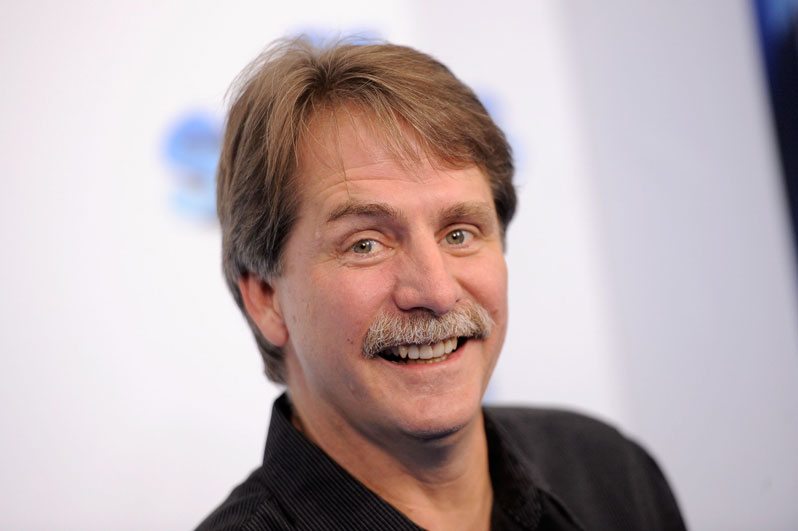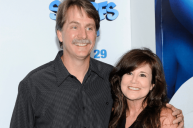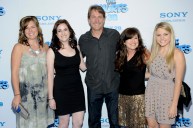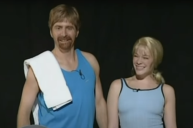Jeff Foxworthy is the best-selling comedy recording artist of all time. He's a prolific author, actor, television and radio host, philanthropist and the cornerstone of the Blue Collar Comedy Tour, one of the most successful comedy troupes of all time.
Videos by Wide Open Country
But you wouldn't really know it talking to the guy. Even in conversation, Foxworthy keeps it down to earth and notably "uncool" — if not introspective.
Foxworthy just released the CD version of his We've Been Thinking tour with Larry The Cable Guy, which found the comic musing on everything from the presidential election to kidney stones. Now with a little time to breathe, Foxworthy talks the difference between country music and comedy, not wanting to be put into a political box and staying in love with standup.
Wide Open Country: So how did the We've Been Thinking tour come together? At this point can you just call up your friends and go on the road?
Jeff Foxworthy: A couple years ago we started doing Jeff and Larry's Comedy Roundup on Sirius XM. Eventually Larry said, "We need to do a tour together." I said I'll do it, but we've got to do all new stuff. And here's how standup is different than country music, and I tell my friends in country music this: if you write four hits, you play until you're 90. People will tolerate the new stuff or whatever, but they pay their money to hear those songs. In comedy, it's the opposite. Once you do an album or a special, people say, "That was funny, what do you have that's new?" They don't want to hear the greatest hits. If you want to stay relevant, there's no shortcut to it. You have to go back to the small clubs and you have to grind it out.
How do you figure out what's funny enough to make the special?
I still don't know what's funny or not. The audience tells me. We could walk into a club with jokes on a stack of notecards and you'd tell me to pick four that I think are going to work the best. I'd be dead wrong on two of them. But the audience is never wrong.
There's a lot of times I'll throw something out there and there's just nothing. And I'm like, "Really that's not funny?" And then you throw something stupid out and people snot on themselves. There's a year's worth of work that goes into every album or every special just grinding out that new material. I wish I had filmed this from night one every two or three months to show the evolution, the work that goes into it. It's like music, the hardest part of it is the part people don't see.
In the special, you talk a little bit about the presidential election, which still hadn't happened at the time. Do you want to throw your hat in the ring for next time?
[Laughs] No, no, no, I do not want that job. There's not enough money to take that job. But Larry and I talk about this. It's a weird time in this country, especially for comics, because there's no middle ground anymore. If you're a Democrat, you're pegging left, and if you're a Republican, you're pegging right. We don't take the time to have the conversation and do a little critical thinking anymore. We just respond emotionally.
You framed the whole "redneck" thing beautifully as a "glorious absence of sophistication." It wasn't about economics, or education or politics. Can you help us find some of that nuance again?
That's kind of my heart right now. How can I talk about some of these things where people don't get offended, but make them take a step back and think about it a little bit and see the absurdity of it? And then finding somewhere in the middle the answers to these things. The practical side of me says it would be great if everybody had health insurance. But how should we pay for it? People won't even have the discussions now. I think that's where comedy is important. It's one of the last places you can get up there with a microphone and tell the truth. It's exemplified so well in Congress — we don't have the discussions. We refuse to have the discussions, and that's just a damn shame.
A lot of country artists are afraid to speak up for their beliefs for fear of alienating some of their audience. Is it possible to be true to yourself and still reach everybody?
I think it is. Because we're all a mixture of things. You know, I'm naturally a Republican. And a Democrat might say Republicans don't care about poor people. But for the last 10 years, every Tuesday I get up at five in the morning, go downtown and work at a homeless shelter. I absolutely have a heart for people that need help. And then somebody might also say, "You're a capitalist." Well, maybe, but I'm also a conservationist. I put half of my farm in a conservation easement.
I'm also a guy whose faith is always important to me, but I can go hang out in Los Angeles where a lot of people don't have faith and we get along great. The truth is, I'm somewhere in the middle, and I don't want to be put into a box. People are no longer interesting when you stereotype them.
So it's more important to be honest with yourself?
Early in my career I had a guy come to me. At that point I had no money. I was making maybe $8,000 a year. He was making these "truck stop tapes" and he said he'd pay me $1,500 for every 30 minutes of material I gave him, but that I had to throw in some cuss words because his audience wanted cuss words. And so I did.
I gave him 90 minutes of material. He sold like three million copies of these tapes. So he's making millions, I made $4,500 and I was ashamed of what I put out. I said, "You know what, I ain't ever doing that again. If nobody buys it, that's fine, but I gotta live with it."
You've always been intertwined with the country world. What do you think of country music now?
I like the music now. But I was down on my farm flipping through the stations on my tractor, listening to "Don't Rock The Jukebox" and Sawyer Brown and Conway Twitty, and I just thought to myself, "Crap this is good music." Steel guitars and early Strait and Garth and Vince. I'm wondering to myself, "If somebody came out with something like this now, would people respond to it?" And I bet they would. A lot of what's on the radio now reminds me of what I grew up on, which is 70s rock and roll.
How do you stay inspired?
I just love it. A lot of people use standup to springboard to film and TV, but gun to my head, I would choose standup every time. But I never want to be that guy that's not funny anymore, so I keep working at it. And 33 years later I appreciate it more than when I started. I remember doing a hairdresser's convention and I didn't know the other two people on the bill at the time. We were in the hall chatting. I was the opener, the middle act was Vince Gill and the headliner was Garth Brooks. We were the new guys at the time, and we still feel like it!
Interview edited for clarity and brevity.




